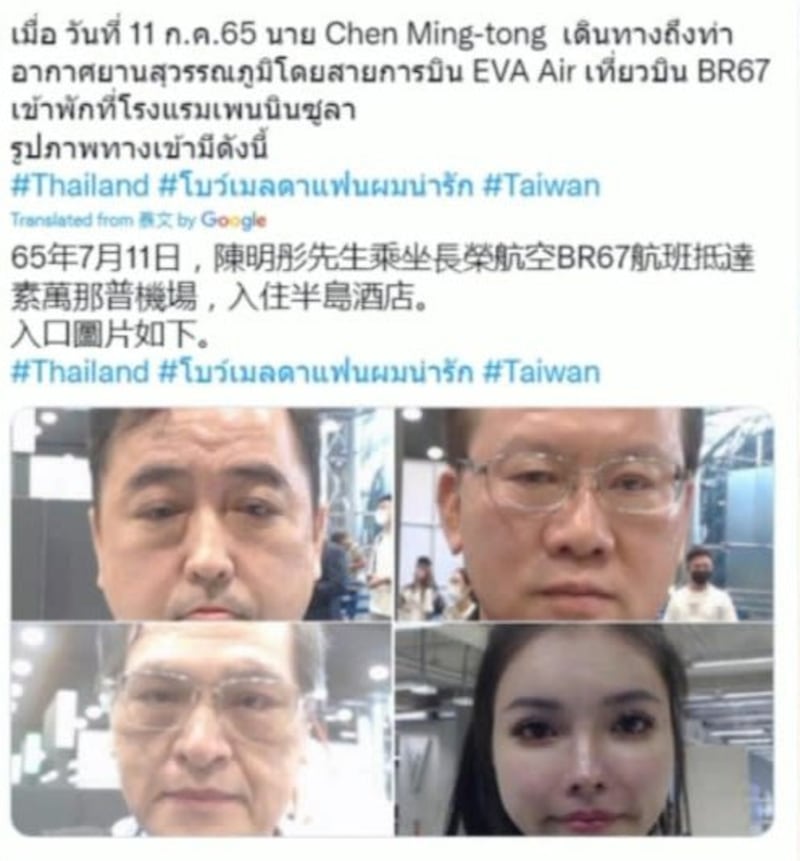Taiwan has dismissed social media posts leaking sensitive details of an alleged trip by its national security director to Thailand as 'cognitive warfare.'
A Twitter account using the handle @andreny45652235 tweeted on Sept. 12 a claim that Chen Ming-tong had been in Thailand for purposes of tourism, but at taxpayers' expense.
The tweet included photos allegedly taken of Chen at the airport, along with an official customs document and a hotel bill. The same post was also shared on Facebook.
An official with the democratic island's national security bureau said the point of the tweet was to show that the whereabouts of Taiwanese officials is known to China, which has threatened to annex the island by force.
The tweet was an example of "classic cognitive warfare," and had come from a short-lived account that was created last month and posted just six tweets before being taken down, the Taiwan News reported, citing an unnamed bureau official.
If true, the post reveals the extent to which Chinese agents have infiltrated security systems in Thailand, the report said.
It also signals to officials from other countries that China might be aware of the details of their trips to Thailand, the paper quoted the national security bureau official as saying on condition of anonymity.
There was no immediate response from Thailand to the report.

Cross-border issues
Opposition Kuomintang lawmaker Chen Yi-hsin called for a direct response from Chen Ming-tong himself.
"I didn't know anything about this, and neither, I believe, did the foreign affairs and national defense committee [of Taiwan's parliament, the Legislative Yuan]," Chen said.
"Security should never be taken lightly ... the director of national security has yet to respond on the matter: he should explain it," he said.
An official who answered the phone at the National Security Bureau declined to comment on the reports when contacted by RFA on Monday.
"The bureau continues to closely monitor and analyze the national security situation, and will respond appropriately," the official said.
Ruling Democratic Progressive Party (DPP) lawmaker Wang Ting-yu said it wasn't unusual for Chen to travel overseas.
"Director of National Security has many matter to discuss with other countries, including online security, regional geopolitical security issues, anti-terrorism operations, and drugs," Wang said.
"It's not uncommon for them to cross borders."
Attack on DPP
Current affairs commentator Shen Ming-shih said the move was likely a covert attack on the DPP, which has seen its popularity plummet in recent weeks, ahead of local elections in November.
"This is more political messaging than cross-strait intelligence operation," Shen told RFA. "It's not quite at the level of life-and-death, spy intrigue or combat yet."
"The main target is the DPP and the [local] elections," he said.
Lin Ting-hui, deputy secretary-general of the Taiwan Institute of International Law, said the post was likely a deliberate leak by the Chinese Communist Party (CCP) intelligence service, using information obtained through its infiltration or relationship with the Thai authorities.
Lin called on Taiwan's foreign ministry to lodge a protest with the Thai authorities, and demand that those who leaked the details of Chen's trip to Thailand be disciplined.
Translated and edited by Luisetta Mudie.
